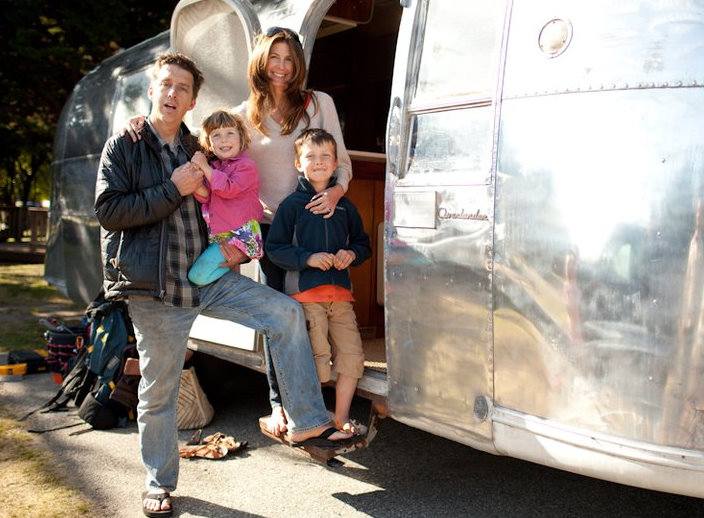
By Liza Mock
In November of 2008 three friends — food journalist Stett Holbrook, producer Brian Greene and producer and photographer Greg Roden, who lives and works in Berkeley — met for dinner at a low-key BBQ joint in the South Bay. Besides being a chance to catch up, the dinner was set up so the three could talk about an idea they had be en mulling over for some time. The thought was to film a documentary-style TV show about sustainable food, driven by interactions and interviews with farmers, cheesemakers, and other food purveyors who weren’t doing things the conventional way.
The evening ended with three content friends, a table full of crumpled, barbecue-stained napkins, and the seed for a TV show that would come to be called “Food Forward“.
The pilot of the public television series will be presented by KQED this fall. A preview screening takes place on Thursday this week at the David Brower Center in Berkeley starting at 6:00pm.
In many ways it’s a feat of endurance that has got the team to where they are today. Early on, when “Food Forward” was nothing more than the seed of a dream, Roden contacted KQED. After describing the idea on the phone to a producer, there was silence, followed by a huge sigh. “You sound really nice and I don’t want to be negative, but I have to tell you right now it’s just not going to happen,” said the woman on the other end of the line.
Roden was stunned. “But why not?” he asked. The KQED executive told him that they got hundreds of proposals every day, often ones with a lot of funding behind them, sometimes the pet projects of famous actors, and still they turned them down because they were not compelling enough.
Roden and Holbrook were not deterred and the show grew and took shape.
As films like Food Inc. and authors like Michael Pollan have made plain, the way we produce food in America today leaves a lot to be desired. The processes used are often detrimental to the planet, to people and to animals. “Food Forward” offers a critique of the conventional methods of food production, but, perhaps more importantly, it also celebrates creative thinking and the individuals who are not just recognizing the problems, but creating solutions and acting on them.
As Roden, who became “Food Forward”‘s producer, puts it: “People aren’t interested in negative images. We are over-saturated with them. Most documentaries focus on problems; we want to offer solutions, to give people a little bit of good news.”
Roden, who grew up on a small citrus ranch in Southern California, had always known that someday he wanted to produce a show and to fund it in an unconventional manner. It was decided early on that “Food Forward” should be aired on public television. Neither Roden nor Holbrook knew that they were picking the most difficult path.
Unlike commercial channels like the Food Network, which pays to air and create a show, public television requires that the show be entirely funded by underwriting secured by the people producing it.
After three sleepless years for its creators, “Food Forward” finally has a contract with KQED for national distribution. The pilot is slotted to be aired in the fall, but the remaining episodes are yet to be made, funding is scarce and the people who have been eating, breathing and dreaming the show are tired. Roden and Holbrook, both primarily creative people, have been forced to become entrepreneurs. As Roden puts it, “fundraising has been very difficult”.
But in spite of all the difficulties, “Food Forward” has been well received. Roden says that he just wants “to see people feel something deep and then maybe go out and plant a tomato”, to incorporate a line from their pilot episode. To promote the show and help find sponsors, “Food Forward” is going around the country screening the pilot.
It has been a very difficult journey, more difficult than the three sitting down to dinner in 2008 could have imagined. Greene has decided to pursue other interests but remains involved as an advisor. Holbrook is currently on the road, towing a 1965, 26-foot Airstream trailer with his family to research and promote the show. He is writing a blog about the road trip and posting to the “Food Forward” Facebook page. On Memorial Day weekend the family visited Fetzer Winery in Ukiah, “the greenest winery in America”.
Roden says he still spends way more time in front of a laptop than behind the lens where he wants to be.
But if there’s a right time for the series, it’s now, what with urban farms springing up everywhere and everyone wanting to know how to plant a garden, raise chickens — maybe even a few goats. As Holbrook says: “It’s truly a movement and we’re getting to play a small part.”
Article Courtesy of: http://www.berkeleyside.com

